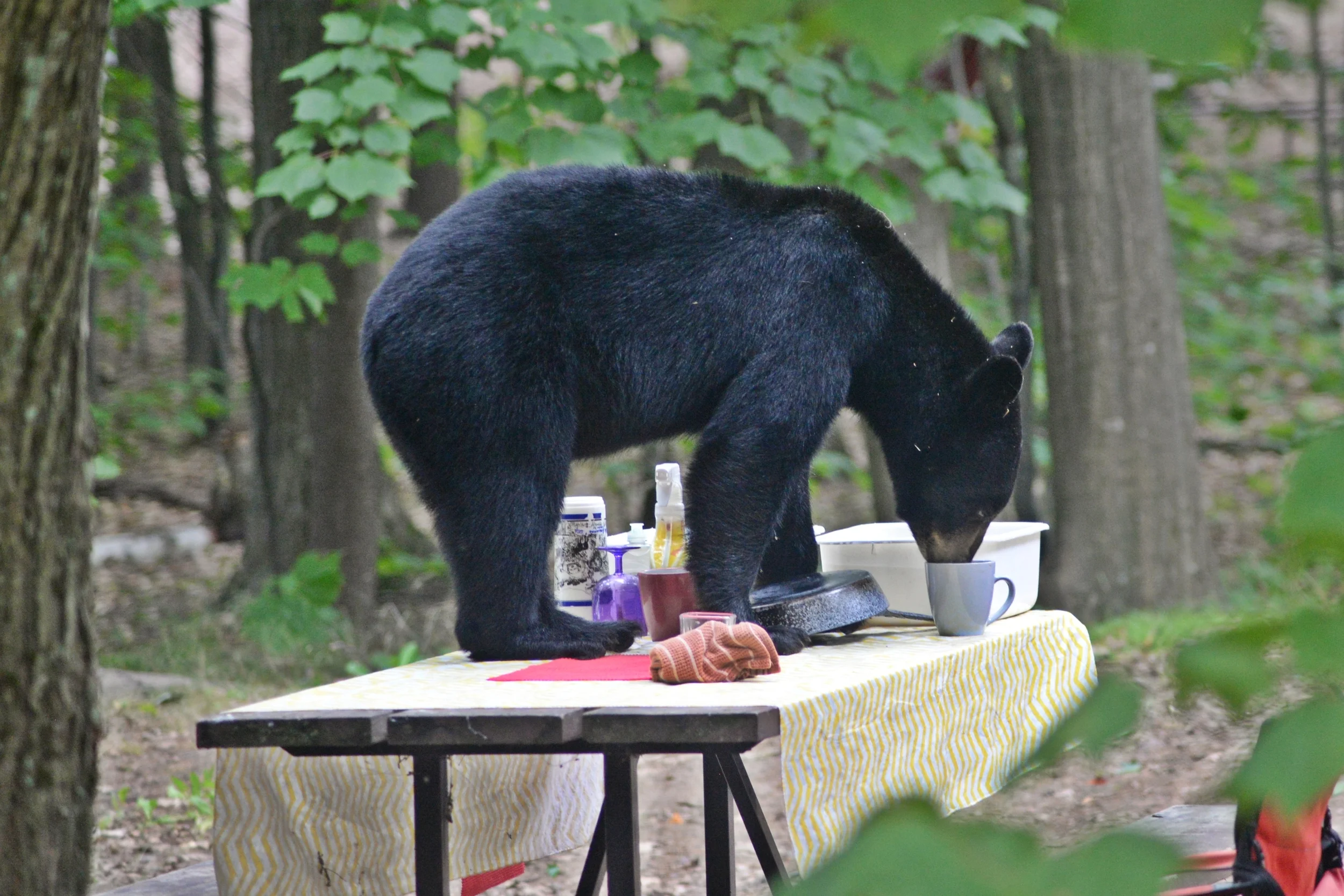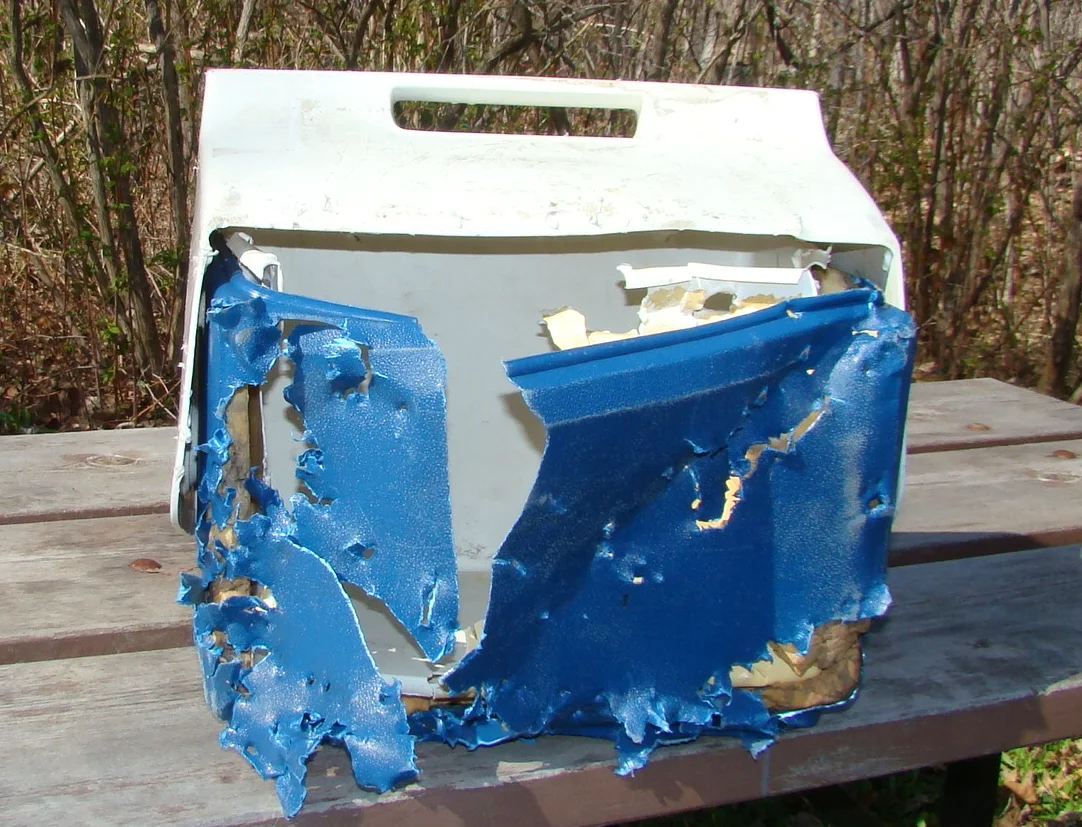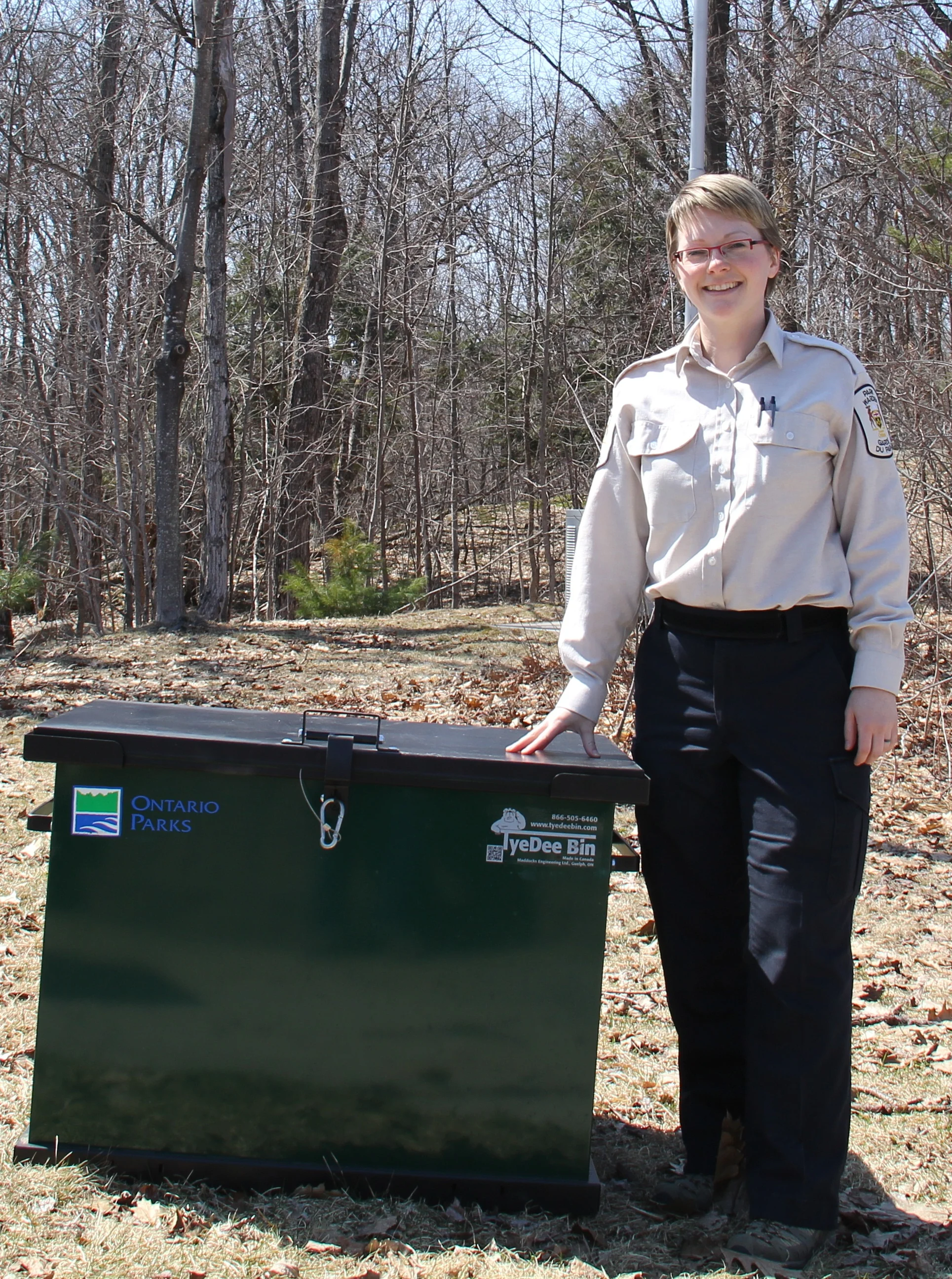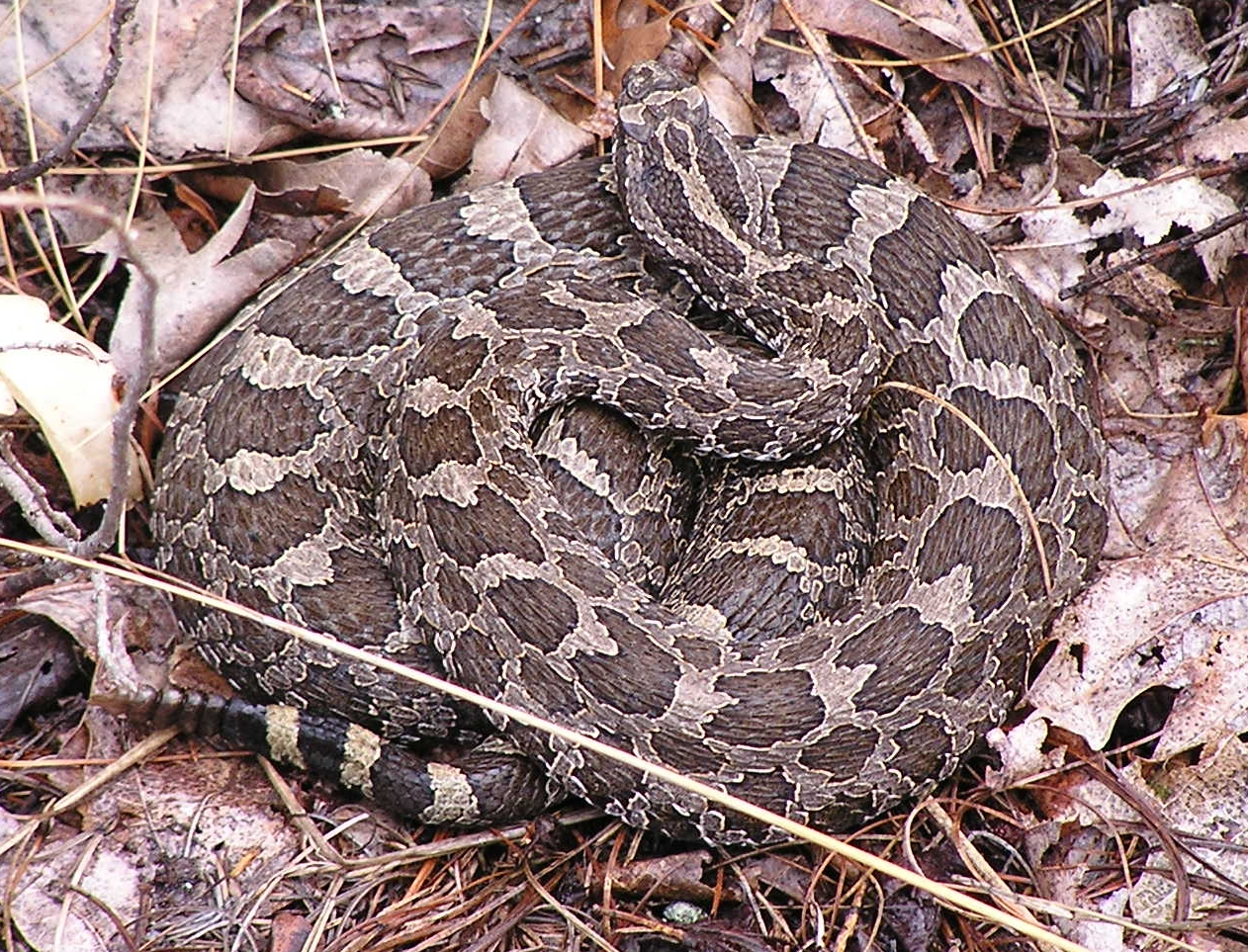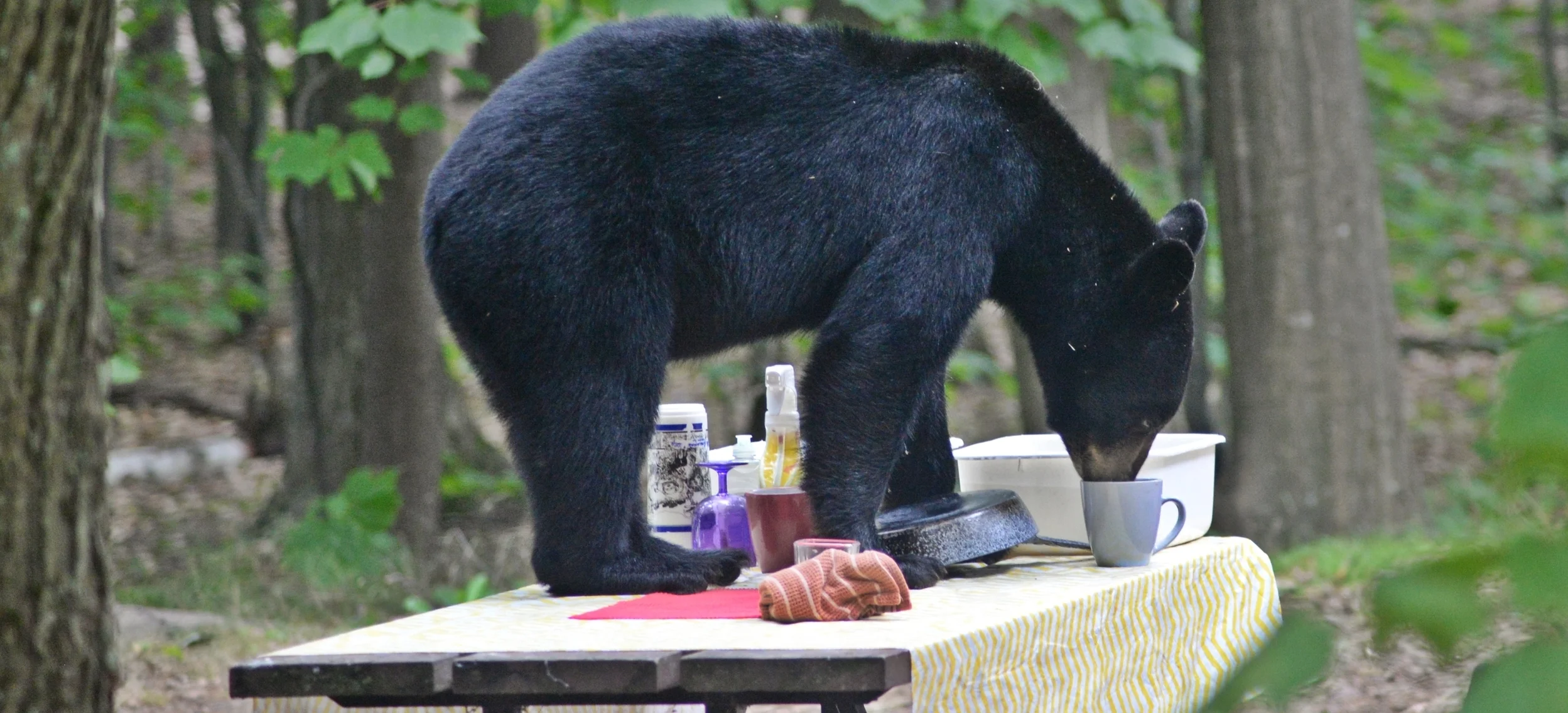
By learning how to camp with Killbear's natural inhabitants, we protect these animals from unnecessary harm. All wildlife is deserving of our respect which is shown through how we camp in their home. Familiarize yourself with best practices for camping with Killbear's wildlife.
Black Bears
Black Bears are a fact of life at Killbear Provincial Park. For most park visitors, seeing a bear is an exciting experience. However, the excitement diminishes when that bear is rummaging through your cooler or tent, in search of food.
Bears are normally shy of humans and quickly get out of our way. However, if they've had luck finding food at campsites, some bears lose their fear and start visiting campsites looking for food left out by people. These "campsite" bears can become persistent and destructive nuisances.
Capturing and relocating campsite bears has met with only limited success. Often, the only option is to destroy them. Please remember: A Fed Bear = A Dead Bear. Keeping a scrupulously clean campsite is the best way to avoid having to do this.
Clean dishes can attract bears! All attractants need to be put safely away when you are not on your site. Photo credit: Eric Wheeler.
Coolers are not bear proof.
Camping in Bear Country:
The park loans out bear bins to people arriving without vehicles.
- Store all food and wildlife attractants in a hard-sided vehicle/trailer/motor home (not a tent trailer) when not in use. Coolers are not bear proof!
- The trunk of your vehicle is the best place to store food and animal attractants. If your vehicle does not have a trunk, place the food and wildlife attractants inside the vehicle cab and cover them with a blanket so that bears cannot see them. Make sure the windows are closed.
- The park loans out bear proof storage bins to people arriving without a vehicle. If you need one, ask at the park office when you register for your campsite.
- Wildlife attractants include: dog food dishes, BBQ’s, cookstoves, cardboard boxes, empty coolers, and plastic storage totes. Even if your storage tote has never had food in it, a bear may have experienced one that did and may investigate it.
Campers that do not bear-proof their sites can be subject to a $125 fine and eviction.
At night people often leap to the conclusion that any noise they hear outside their tent is a black bear. Remember there are many more raccoons in Killbear than black bears and they are also on the lookout for an easy meal. Keeping your food safely away from bears will diminish the number of raccoons on your site.
Massasauga Rattlesnakes
Killbear likely doesn’t have many more snakes than most parks in central and southern Ontario. We just talk about our snakes a lot because we’re lucky enough to have the threatened Eastern Massasauga Rattlesnake while most other parks in the province don’t.
Rattlesnakes are something to be cautious of, but there is no need to be frightened of them. Massasauga Rattlesnakes are small and generally quite timid around people. They prefer to hide rather than have a confrontation with a human.
Massasauga Rattlesnake. Image: Anna Lawson.
Camping in Rattlesnake Country:
- Listen for rattlesnakes. Rattlesnakes will often rattle if you come too close.
- If you hear or see a rattlesnake stay at least 2 metres away.
- Wear closed-toe shoes (not sandals) and long pants at night or when you cannot see the path ahead.
- Do not pick up any snakes. Many people cannot tell the difference between snake species so it is best not to pick any snake up at Killbear.
- Keep dogs on a leash at all times.
- If you see a rattlesnake on your campsite or on a park road: have one person watch the snake from a safe distance while someone else contacts park staff immediately. Trained staff will catch and relocate the snake to ensure the safety of both visitors and snakes.
- If you are bitten: Remain calm and proceed to the Parry Sound hospital, a thirty-minute drive from Killbear. The local hospital is the site of the provincial anti-venim depot and is the designated leader in dealing with rattlesnake bites. With modern medicine, no one has died from a rattlesnake bite in Ontario since 1962. There have only been four visitors bitten by rattlesnakes since Killbear opened in 1960. After short hospital stays, everyone has been fine.
Come to the Visitor Centre to see our live Massasauga Rattlesnake and Eastern Foxsnake on display and to talk to one of the park naturalists about camping in rattlesnake country. Download the Massasauga Rattlesnake Factsheet the park has produced based on years of extensive research into park snakes.
Deer, Chipmunks and Everything Else
While the white-tailed deer and chipmunks might appear "friendly," it is illegal to feed them. Please keep our wild animals wild. Their natural instincts to be wary of humans will protect them.
